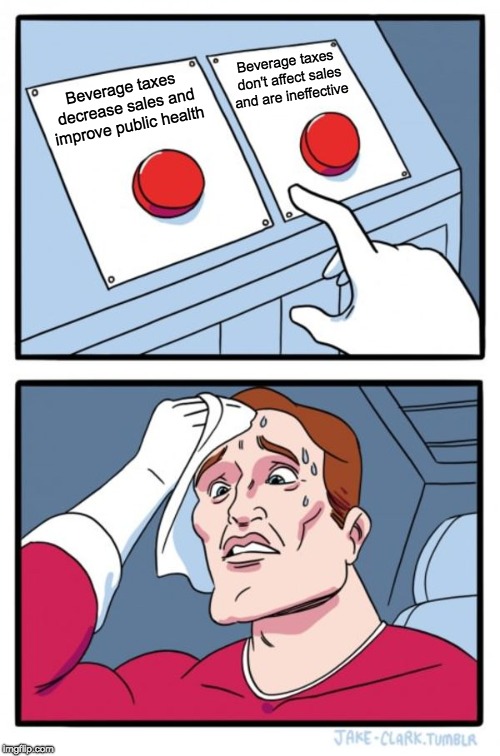A Bitter Tax to Swallow
A Sin Tax Takes its Toll in Philadelphia
By mid-March, shoppers in West Philadelphia will have one fewer supermarket option. Jeff Brown, owner of a ShopRite supermarket in the area, says he is shutting down the store—transferring its 111 employees to 12 other supermarkets he owns. Businesses close their doors for a variety of reasons, but in this case, Mr. Brown lays the blame squarely on the city. Specifically, he cites the city’s new beverage tax on soda and sweetened beverages. According to Mr. Brown, the tax has resulted in the loss of 25 percent of the store’s business over the past two years, forcing him to close the store.
Philadelphia’s sugary drink tax, known as the “soda tax,” was implemented in January 2017 and is among the highest of such taxes across the nation. The city charges a tax of $0.015 per ounce of fluid, which is estimated to increase the price of sweetened beverages by about 20 percent. Several other cities across the country also charge soda tax on sweetened beverages, including Chicago, Berkeley, Oakland, San Francisco, and Seattle. Philadelphia’s tax of $0.015 per ounce is second only to the $0.02 per ounce tax levied by Boulder, CO.
In a bizarre response to Mr. Brown’s claims, Philadelphia’s Mayor Jim Kenney announced that Brown is scapegoating the city’s new tax because a study from researchers at Harvard, Johns Hopkins, and the University of Pennsylvania have found that the city’s new tax has not affected overall sales. In fact, there have been several studies that seek to examine the effects of Philadelphia’s soda tax and the results are decidedly mixed.
More importantly, the Mayor’s assertion casts doubt on the primary reason many advocate for soda taxes in the first place—to reduce consumption of such beverages. If taxes that specifically single out certain goods or services for an additional tax penalty to reduce sales (and consumption) do not, in fact, reduce sales or consumption, then why have them at all?

The cynical but inescapable answer is simple: revenue. So-called “sin taxes” are a favorite tool of policymakers that deem themselves worthy of “helping” their fellow citizens make “better” choices. In addition to soda taxes, similar reasoning lies behind punitive taxes on things like alcohol, gambling, and cigarettes. Public health advocates and moral busybodies, looking for ways to force others to change their behavior rather than persuading the public with the best information available, are often able to join with policymakers hungry for additional revenue. Securing funding for various government programs is often made easier when the funds come from smokers or those engaging in otherwise undesirable behavior, rather than the broader public.
Unfortunately, it is often small businesses and low-income residents that bear the brunt of these policies. According to a 2018 report from the Tax Foundation, 78 percent of the tax collections from a per ounce beverage tax would be paid by households with an income less than $100,000 per year. Likewise, taxes on cigarettes are disproportionally paid by lower income residents. This is both because those with lower incomes are more likely to be smokers and the poor spend a larger portion of their income on cigarettes. Additionally, small businesses that sell goods that fall under a “sin” tax bear the cost of the artificial decrease in sales, often resulting in closures. This brings us back to the case of Jeff Brown and the closing of the ShopRite store.
Overall, sin taxes like the one that forced the closing of ShopRite are attempting to achieve contradictory goals. First, proponents claim that the taxes will reduce the undesirable behavior by making it more expensive. But second, the revenues generated from the taxes are vitally necessary to fund various government programs. The two goals are often in conflict and, in some cases, certain government programs become dependent on citizens indulging in less than healthy behavior. Don’t stop smoking, the pre-kindergarten program needs the revenue!
Rather than selectively embracing paternalism to dictate the behavior of other adults, policymakers should be transparent about the expenditures of government and should make their case to fund programs directly to the public. Small businesses and lower income residents alike will be better off without the “help” of others seeking to change their behavior through the tax code.
Catalyst articles by Ben Wilterdink | Full Biography and Publications
